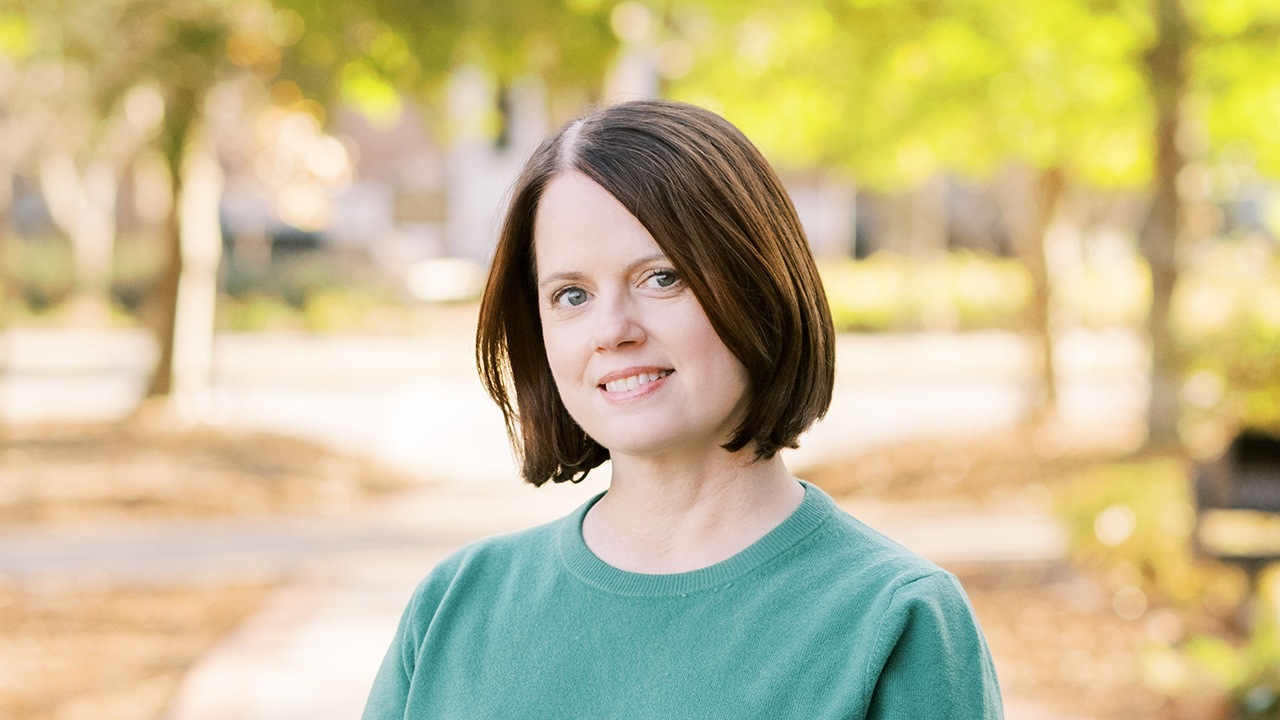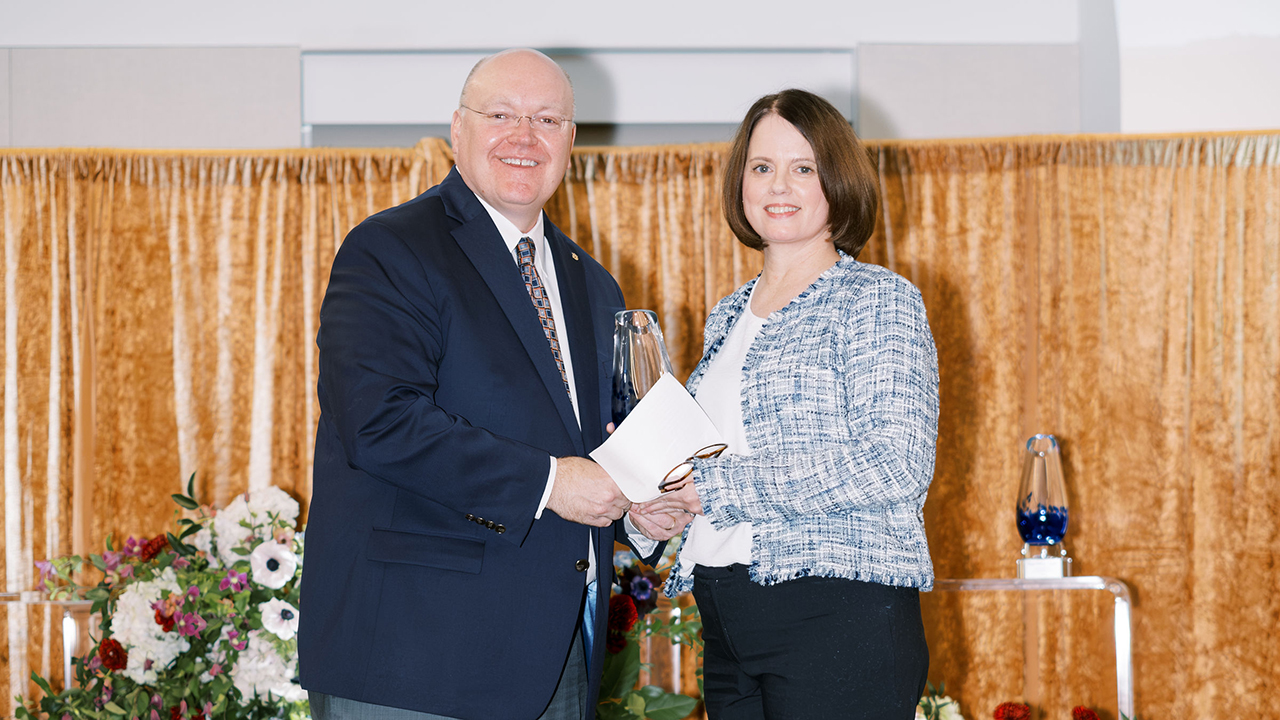content body

Pam Hennessey knows firsthand that future nurses need a support system just as much as the patients they’ll one day serve.
And for the past 25 years she’s done just that in the way of academic advising at Auburn University’s College of Nursing.
"Our advisors work on building relationships with our students through listening and showing compassion," said Hennessey, who today heads a team of advisors that she pioneered in the college. "Sometimes, we have to have hard conversations with our students. Those conversations are much easier to handle when the student has been supported and nurtured in the past."
For Auburn’s College of Nursing, such support began for students in 2001 when Hennessey started her Auburn journey as the college’s first academic advisor. Among the challenges of adapting to a new generation of students and supporting the college’s efforts to address a growing global nursing shortage, Hennessey mastered every aspect of advising for 300 students. With the support of colleagues and peers, she transformed her experiences into a vision for a future advising team, one that would be adept at anticipating and meeting the evolving needs of both students and faculty.
“When I started, I chose four advisors across campus that were leaders and had them on speed dial for questions,” Hennessey said. “I became involved in the Advisor’s Caucus, and, to this day, I still rely on that organization, other advisors, and campus partners to assist me when questions arise.”
No longer a one-woman show, Hennessey has built an advising and student support unit that focuses on providing personalized guidance and assisting students in navigating course selections, clinical placements and career planning — approaches that reflect the college's increasing reputation for excellence in nursing education. Excellence is a term that Hennessey has become synonymous with, and that’s why she was recently awarded the 2025 Provost Advising Award for Outstanding Advising Administrator.
"It was an honor to receive the Outstanding Advising Administrator Award; however, I have to give credit to my AUCON Student Services team," Hennessey said. "We have a group of the six most dedicated, hardworking staff members who have such a heart for students and helping them succeed."
In addition to her advising award at Auburn, Hennessey was also recognized by NACADA as the 2025 Region 4 Award winner earlier this year and will represent the university as a global nominee later this summer.
Nurturing Next-Gen Nurses
In the 25 years since Hennessy arrived at Auburn, the College of Nursing has undergone considerable changes, from opening a state-of-the-art facility in 2017 to its redesignation from a school to a college in 2022. Throughout each transformation, Hennessey has enabled Auburn's nursing programs to adapt and innovate, helping build one of the top-ranked programs in Alabama.
As the demand for primary care nurses and other healthcare professionals continues to grow, the need for nurses, especially Auburn nurses, remains high. Now advising more than 1,200 students, Hennessey has crafted a future-focused advising unit rooted in her core values of care, respect and professionalism.
By leveraging the strengths and talents of a diverse advising team dedicated to creating innovative programs and impactful experiences, Hennessey has helped the college carefully manage increases in student demand while expanding its curricula and creating new advising programs. The result has been key efficiencies in the college's approaches to student success, most notably its admissions processes.
Recognizing the need for more holistic admissions practices, Hennessey and her team collaborated with the college’s faculty to develop revised criteria that now consider a student's academic performance and life experiences, providing a broader evaluation of their potential to succeed in nursing school.
"Our revised approaches ensure that essential advising is delivered effectively during critical points in students' progression from pre-nursing to the professional program," Hennessey said.
In addition to new admissions processes, Hennessey and her team have updated many of the college's advising practices and tools, including a Canvas Advising Page for nursing students, piloting Advise Assist for the campus and improving transfer student experiences. With an emphasis on creating innovative pathways for future practitioners, the unit developed STEP Into Nursing, a program that engages high school students from underserved groups interested in nursing careers.
Through these efforts, Hennessey and her team have increased engagement among students who show potential as future nurses but might not initially be admitted to Auburn's program. By expanding its RN to BSN program and creating concurrent programs with two-year institutions, the college now offers pathways for talented students to enroll in Auburn courses while completing their associate degree, eventually returning to complete their bachelor's degree. As a result, the college continues to graduate highly prepared nurses with a 100% NCLEX pass rate at graduation.

Creating Connections
As Auburn's student population has grown over the past two decades, so has the need for a cohesive and responsive advising network. With first-year, graduate and total student enrollment reaching all-time highs, the university has strategically expanded its advising structures to reduce average advisor-to-student ratios and increase retention and graduation rates.
By actively combining advising staff and resources with student development professionals from across the colleges, the resulting Advisors and Counselors Caucus blends the expertise of advisors from all disciplines and is often recognized as the pillar of Auburn's student experience — a sentiment especially true in the College of Nursing.
"Auburn University has had a big influence on me personally and professionally, shaping my growth as a leader for student success," Hennessey said. "By working with other advisors, directors, staff and campus partners, I get to learn from the best. This has shaped me into a more effective leader and stronger advocate for students."
Hennessey said she hopes to play a similar role in the lives of future student advisors. For that next generation of leaders, she offered this advice:
"Build relationships with your students and fellow advisors, embrace continuous learning and always, always be flexible."




